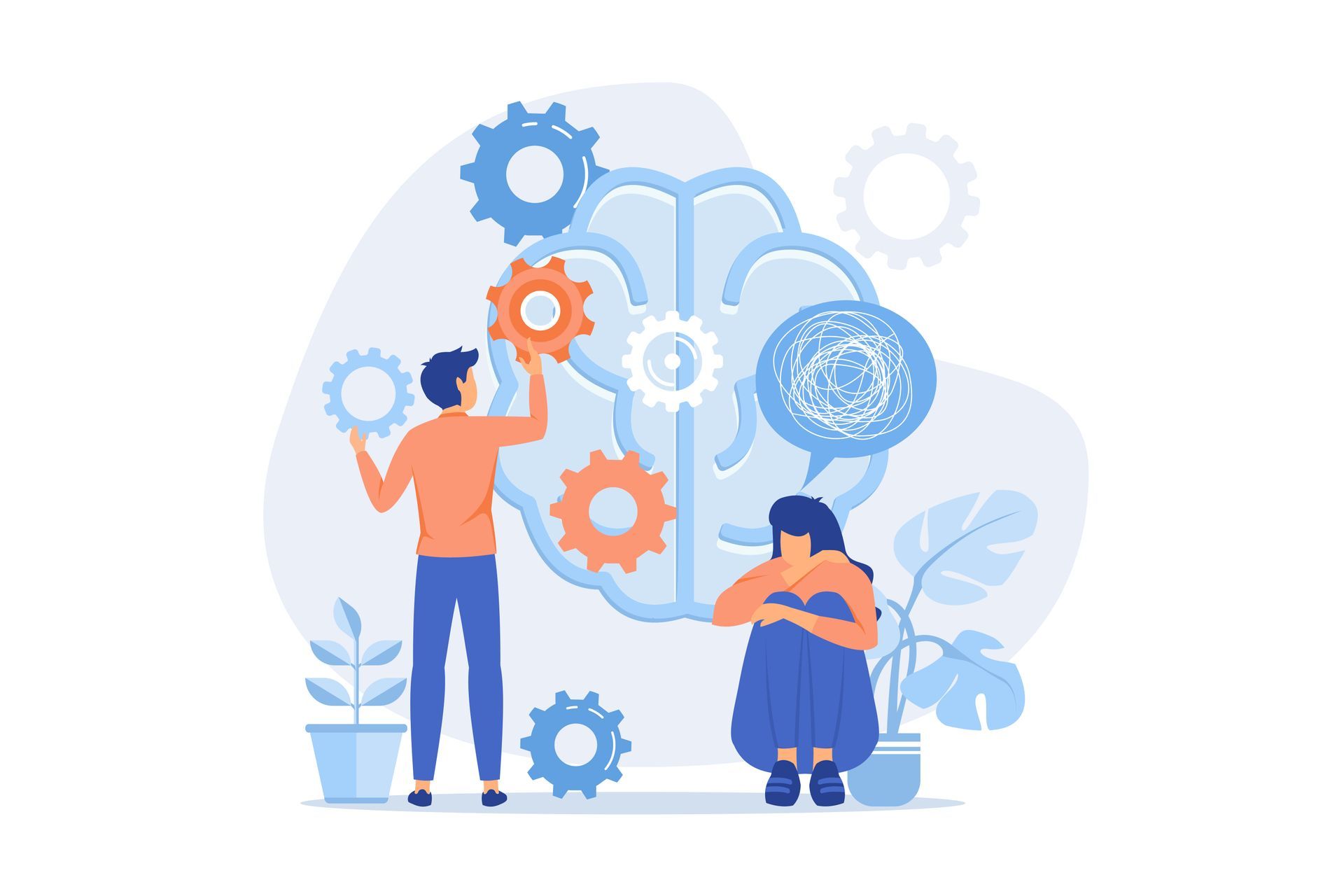How Mental and Behavioral Health Assessments Can Provide a Clinical Foundation For Outpatient Therapy, Perinatal Care, and Eating Disorder Treatment

By Director of Child and Adolescent Services Alexis Nicodemus, AMFT, APCC
Mental and behavioral health assessments are often administered by clinicians for new clients seeking care. Generally consisting of a series of questions for clients, assessments are intended to gain an overview of clients’ mental and behavioral health so treatment can align with their needs.
WHAT ARE MENTAL AND BEHAVIORAL HEALTH ASSESSMENTS?
Clinicians often provide assessments to individuals beginning mental and behavioral health care as a way to obtain an initial understanding of their symptoms and conditions. Typically, an assessment takes a holistic approach by gathering information about biological, psychological, and social factors that may be influencing a person’s mental and behavioral health. After completing a client’s assessment, a clinician can make recommendations for their treatment and implement a plan for their care.
Mental and behavioral health assessments generally take about an hour and include questions about why a person is seeking care and what their goals for treatment may be. Not all assessments are the same, however. At Thrive Wellness, our assessments vary with each service, be it outpatient therapy , perinatal care , or eating disorder treatment .
OUTPATIENT THERAPY ASSESSMENTS
An outpatient therapy assessment consists of questions about a person’s:
- Childhood
- Current symptoms and when they started
- Current family system
- Employment history
- Health history and any current or previous diagnoses
- Family history
- Mental and emotional state
- Past trauma
- Reason for seeking services
- Social relationships
- Support system
From there, the clinician recommends the frequency and length of weekly sessions that will be most effective for the client’s healing.
PERINATAL HEALTH ASSESSMENTS
Perinatal health assessments involve many of the same questions as an outpatient therapy assessment in addition to perinatal-specific inquiries, such as
- The person’s current state of the perinatal period which begins when an individual becomes pregnant and lasts up to one year postpartum
- If their symptoms worsened during or after pregnancy
- If they have any children and if so the ages of their children
- Reason for seeking perinatal services
After obtaining answers to the questions above, the clinician can generally notice signs that the person may be struggling with a perinatal mood and anxiety disorder (PMAD) . If this is the case, the clinician will dive deeper into the individual’s perinatal background and other contributing factors. They may ask questions about:
- Any previous birth experiences, including any miscarriages or stillborns
- Any pregnancy complications or safety concerns
Upon finishing a perinatal assessment, the clinician may suggest different levels of care depending on the severity of the client’s concerns. Outpatient perinatal services, which may include mental, behavioral, and physical health care may be most aligned with the person’s needs. Or, a more structured treatment program, such as Thrive Wellness’ It Takes A Village perinatal day program may be a better fit.
EATING DISORDER TREATMENT ASSESSMENTS
As with outpatient therapy and perinatal assessments, an eating disorder assessment contains inquiries into the biological, psychological, and social aspects that may be influencing a person’s disordered eating behaviors . Additionally, an eating disorder assessment gathers information about the eating disorder itself, by asking about:
- Current nutritional intake
- How the eating disorder has manifested
- How the person views their body
- Weight information , including the individual’s lowest, highest, and current weight
Following the eating disorder assessment, a registered dietitian administers a nutritional assessment to the client. The clinician may also request lab tests and an electrocardiogram (EKG) to gain a fuller understanding of the person’s medical state. From there, the clinician offers treatment recommendations that may involve residential treatment, partial hospitalization, and intensive outpatient programs .
Related: Defining an Eating Disorder Treatment Team at Thrive Wellness: Comprehensive, Collaborative Care
DEEPLY-ROOTED HEALING AT THRIVE WELLNESS
At Thrive Wellness, our interdisciplinary clinicians work to understand clients’ mental, behavioral, and physical health struggles in order to create treatment plans that facilitate comprehensive wellness. Through collaborative, targeted care, our specialists treat individuals with eating disorders , perinatal mental health concerns , and other mental, behavioral , and physical health challenges. Reach out to learn more about our integrated health services .
While all Thrive Wellness locations offer interdisciplinary clinical teams who collaborate to treat eating disorders, perinatal mood and anxiety disorders (PMADs), and additional mental and behavioral health conditions, programs and services may vary by location.
About the Author
Director of Child and Adolescent Services Alexis Nicodemus, AMFT, APCC
Alexis Nicodemus earned a bachelor’s degree in early childhood education with a minor in counseling as well as a master’s degree in counseling from Sacramento State University in California. Her clinical experience includes working in intensive outpatient programs as well as residential facilities for eating disorder recovery. As the director of child and adolescent services at Thrive Wellness Sacramento, Alexis helps to ensure that program curriculum is properly implemented, works to collect collateral contacts as needed to support treatment, and offers therapeutic services to clients experiencing eating disorders and co-existing conditions.
As a clinical therapist, Alexis employs modalities such as cognitive-behavioral therapy (CBT), dialectical behavior therapy (DBT), and mindfulness practices to support clients struggling with mental and behavioral health concerns. Her passion is to assist individuals in the ways they most need in order to find joy, hope, and purpose along the path to healing. Alexis wants clients to know that while life inevitably presents challenges, they are not alone in facing them and there is always light at the end of the tunnel. She strongly promotes the importance of mental health, emphasizes that each of us matters, and advocates for seeking assistance when one’s well-being depends on it.








